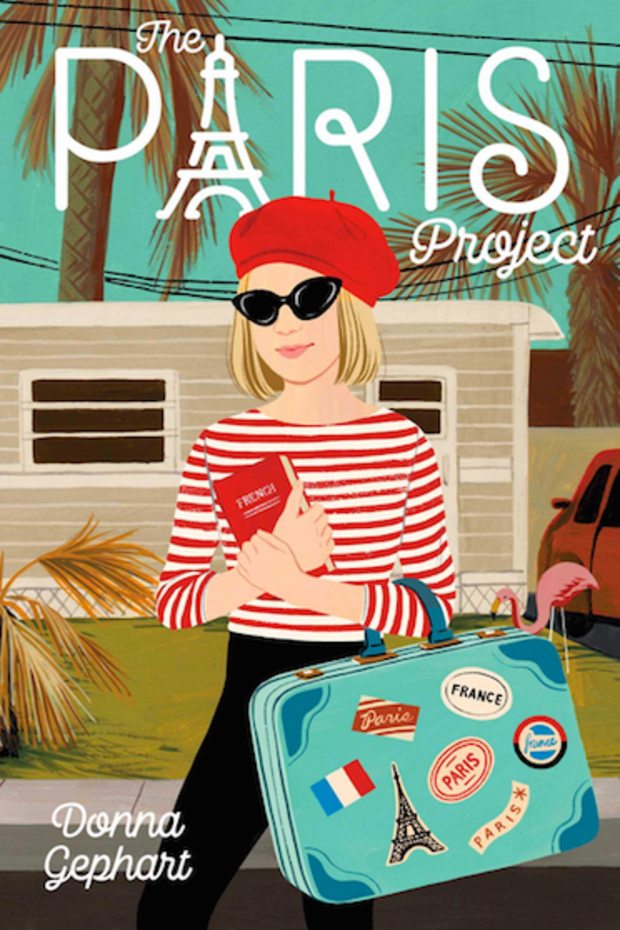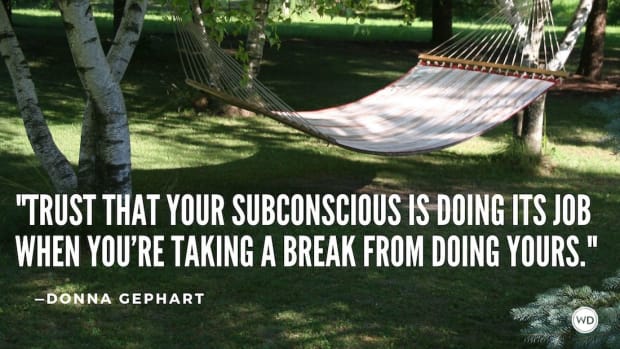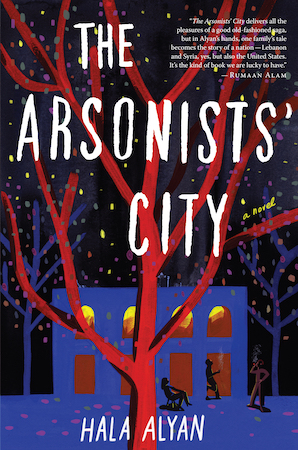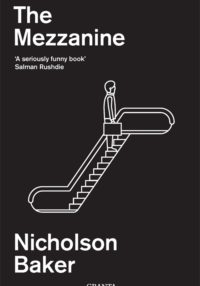In the early months of 2021, with the pubs and clubs, not to mention the shops, closed until further notice, Jeremy Atherton Lin and Kevin Brazil came together to talk to reminisce about drag nights and gay clubs, and the community these places nurture. Atherton Lin is the author of Gay Bar, a cultural and personal history of gay bars across London, San Francisco and Los Angeles. Kevin Brazil’s What Ever Happened to Queer Happiness? will be published by Influx Press in 2022.
Kevin Brazil:
When lockdown first hit – good lord, it’s almost been a year – I couldn’t bear the thought of going out. Getting through was just about all I could manage. Even in the summer, when there were raves happening up in Hackney Marshes, and a friend told me stories of everyone sitting around a bonfire, passing around a key, I was like: nah, I’m good.
I went to one socially distanced drag show in Bethnal Green in October. Maybe eight tables, one song each from three queens. (A little stingy, don’t you think?) We couldn’t cheer, so we had to shake maracas. And the maracas didn’t even work. It was the saddest drag show I ever did see, and not in a sweet way. It was just sad.
But over Christmas it really hit me. I think like everyone I thought bars and clubs would be opening up again this year, and now, who knows. I spent December going for runs in the countryside and listening to lives mixes recorded at clubs and festivals on my headphones. I spent January reading about the history of nightclubs. And then I read your book, Gay Bar: Why We Went Out. I know it must have been written and finished a while ago, but now that subtitle has taken on a whole other meaning. You spend a lot of time imagining what would happen if gay bars no longer existed – what is it like for the book to come out in a world where, at least temporarily here in London, they really don’t?
Jeremy Atherton Lin:
Kevin! The failed maracas are so zeitgeisty. I guess one way of thinking about it is, yes, that was a pathetic event, but what would the online version have been? The equivalent to failed maracas on social media is, at best, the humiliation of very few likes. At worst, it’s accusations flying, people piling on. Lately I find myself assuming all queer people are mad at one another. Perhaps because we aren’t engaging in spaces where something like the maracas malfunction occurs, sad but also funny. (Or was it not even funny?) The saturnine humour of the paltry rattle, something spontaneously experienced in real time and space. And the sidelong glance. The actual sensation of feeling seen. Proprioception. And maybe the drag queen onstage says something a bit yikes, a bit iffy, but hey she’s an elder, it’s a performance, let’s give her a chance. (Then she strikes again. But at least there’s someone else there to share another sidelong glance with.) And maybe the bartender is a hottie but you don’t envy his job in a pandemic. So instead of the compare-and-despair that happens alone on a device, this person becomes dimensional, their earlier and later more readily imaginable. And you watch him laugh with one customer then grimace at the next, and there are dimensions.
But, yes, same as you, initially I didn’t want to go out, either. The lockdown put a moratorium on serendipity. There’s this Henry James passage on the lines of, a city’s excitement is the danger lurking around the corner, even if you never turn that corner. Now around-the-corner has been closed.
Around the time of the first lockdown, I came across this popperbate video comprising different porn clips edited together to create a narrative of horny men in an American suburb who commune via cam from behind closed doors. It includes establishing shots, taken from Google Street View or whatever, of banal suburban curbs and hedges and driveways, the suggestion being that a frisson runs through the street. I have to admit, I find that sexy. I’m from the suburbs. I grew up at the end of a cul-de-sac. I have come to kind of embrace my suburban view of the world, which, for me growing up, was very much about observing popular culture at a remove.
But my larger concern is that as we sequester online, our lack of imagination threatens to foreclose our respect for other people’s realities.
Hope things are ok as can be with you. Sun today!
Brazil:
Dimensions: what a gorgeous way to phrase it, and what a beautiful thing to have done – to have taken that anecdote about maracas and unfolded it to reveal all the facets of what that evening could have been. For of course a sad evening out is better than sitting at home, observing, as you say, queers getting mad at each other online. I’ll take your fantasised version of that night over what really happened – though isn’t that the truth of any night out?
I wonder if the online anger is also caused by the queers not being able to be together in person. Being less able to support each other to cope with the shit that keeps happening. I think of the UK High Court ruling, in December, that trans children now need a court order to access hormones for their health care, and what it must be like for them, and their loved ones, to be doing that more alone.
That those maracas were disappointing, though, made me think of one of the first lines that really struck me in Gay Bar: ‘The gay bars of my life have consistently disappointed.’ Mine too! And from the very beginning. Here is another anecdote for you. The first time I went to a gay bar I was maybe seventeen, it was called The George. I had taken a three-hour bus up from the country where I lived to the city, had gotten changed in a McDonalds, and went to the small side bar open during the day – nicknamed, as I would later learn, Jurassic Park (think about it). I went in, a guy in his forties bought me a Coke, and it took him about 5 minutes to invite me back to his. ‘I worked on Madonna’s last tour, you know.’ Could all the clichés I have feared have been more confirmed? In a way, the disappointment was exquisite.
And yet I’ve kept going back, for all the reasons you write: ‘If my experiences in gay bars have been disappointing, what I wouldn’t want to lose is the expectation of a better night. Gay is an identity of longing, and there is a wistfulness to beholding it in the form of a building, like how the sight of a theatre stirs the imagination.’ I wonder if the disappointment of gay bars – one I wouldn’t want to lose – is bound up with what you say they offer: the sidelong glance. The sidelong glance might lead somewhere – but it might not.
And this, in turn, might not just be something inherent to gay bars, or ‘gay’ as a specific identity, but to your final concern: our respect for other people’s realities. Their sidelong glances might not give us what we want; I’d hazard to say they mostly don’t. But we go out, as you write, ‘to take risks . . . to be close to other bodies’.
One thing I admired in Gay Bar was how it used the gay bar to think about the history of a very specific social identity – ‘the gay’ – but also the nature of our social identities in general. That all ‘our identities always lie in the aspiration’. You track how those aspirations have changed, in your own life, and in Britain and the US around you: aspiring to be ‘gay’, then a ‘fag’, then ‘queer’. We can see our identities as different aspirations – not different truths about who we are – which allows us to question them, analyse them, and maybe get rid of them, with less of a sense of threat. Or is that just a way of avoiding risk?
Things are OK with me, and I hope they are too with you. And sun again here in south London!
Atherton Lin:
You were intrepid. A three hour bus ride! My first experiences were very much about being taken along. Almost like being assigned gay. Acquaintances detected a flair and presumed homosexuality. But I thought it possible these two things were coincident, that my particular flame was my own and didn’t belong to gay. You wrestle with something like this in your essay ‘Whatever Happened to Queer Happiness?’ Do your thoughts around this shift?
Your three-hour bus displayed some impressive self-knowing. I was being read. Are there self-identifications you prefer? As you mentioned, I love fag. For myself. Homosexual as a noun is now unsayable, and therefore kind of tempting. Supposedly Foucault wrote about himself San Francisco, ‘I am a homosexual in a city full of gays.’ Gay Liberation is a tremendous legacy, but the word gay can feel embarrassing. I don’t think that’s internalized shame. It just sounds goofy. I never heard it positively as a kid. Now it’s anodyne. And I always felt gay bar was a term to be played in a minor key. ‘Here’s to the gay bar’ sings Frank Ocean, mentioning it just once (and he is taken there). To me, personally, queer can feel like the Tate Britain term – weirdly, the one I employ to avoid offending delicate sensibilities. High-end anodyne. But that’s unfair to its expansive roots, its role as an upsetter. Just as disavowing gay may be spurning hippie elders (gay as in Gay Sunshine).
Anyway, either through your own impetus or my own passivity, the gay bar was a given. That may be something I keep trying to articulate: that homosexuality can be private, but gay is public-facing. When I’ve written about feeling real, I suggest that identity may lie in the aspiration. But also in my example of the song ‘You Make Me Feel (Mighty Real),’ it begins ‘you make me’ – so it’s not just about feeling real, but feeling seen. I tried to enact that in the writing, later in the book: mutual recognition. Maybe a little narcissism thrown in? That’s cool with me.
I wonder if that guy actually worked on a Madonna tour. His identity was in the proximity. And he wanted close proximity with you. Do you remember the bus ride home?
Brazil:
I remember the cream knitted vest I bought in a thrift shop, thinking I needed something gay-but-not-too-gay to wear (though really, what was I thinking). I remember how greasy his curls were on his balding head (was it Brylcreem? Dax Wax?). But the ride home? Nothing. I think that’s because, for me, the thrill has always been in the anticipation, the potential, what might be. Since we are swapping Foucault anecdotes: I’ve never agreed with his belief, perfect as it is as a quip, that the best moment in the life of a homosexual is ‘likely to be when the lover leaves in the taxi’. For me it has always been waiting for him to arrive.
Maybe that pleasure in the idea of potential, the moment when you believe something unscripted can happen, isn’t so far from your belief that your flame was your own. And maybe it is a way of answering your question about labels and cultural prescriptions. ‘Fag’ to me, has always been too North American. It always sounds in my head with a drawling American accent; I can’t even hear it in Irish English. ‘Queer’ was something I first encountered in the pages of an academic textbook, long after I knew I was attracted to men (I’ve never known I wasn’t). So it has always felt foreign, and today, I share your sense that it is a bit ‘Tate Britain’, a bit heritage. I have spent a lot of time wondering, and some time writing, about the conundrum you meditate on in Gay Bar ‘of whether such subcultures are heritagable at all’. It seems like every day there is a new queer heritage project. Only today I read about a queer heritage audio walking tour designed for Cambridge University. Do you think there can be ‘queer’ heritage? Is that the same as asking: do you think there should be? Though I also share your sense that this hesitancy is unfair to everything that ‘queer’ as an identification has been able to achieve. And that the security to be so hesitant is a luxury that previous generations of queer activists made possible. ‘Gay’ – that is what existed as the world’s name for what my desire was, and I walked right into it, just like I walked into that gay bar, and it felt fine.
But would I have built it for myself? Probably not. Since aren’t these labels and spaces erected by heterosexuality as a way to manage its issues? And honey, doesn’t she have issues. In my essay about queer happiness, as you sensed, I wanted to write about how limited the scripts of gayness and queerness can be. Or rather – the public scripts, since like you, I more and more think that these scripts and identities are about claiming a public identity, which is about achieving political rights, social recognition, and so on, but really has little to do with telling the truth of who we are and what we want. Which is why straight memoir and autobiography don’t quite fit as the literary genres to grapple with identity, at least for me. Where I am now, is where that essay ended up – the anecdote of Lou Sullivan feeling most gay when he checks out another gay man checking him out on the street. (Is that another version of your sidelong glance?) Who we are – which is what we are using these labels to try and pin down – comes into existence through the recognition of others. (Another reason why first-person writing can’t quite grasp how identification works). That is why these demands are so fraught, I think. It’s not enough to say who we are: the fight is over having others say they believe it, that they see it, that they will say it back. And we can’t ever control other people. That is the pleasure, and also the terror.
Though we still have to offer a version of ourselves to those others. You write, at one point, that ‘Memoir is how you groom yourself. Memoir is drag.’ I loved this idea of memoir as drag. It’s as much of performance as anything – and no worse for that. I wonder what you think of memoir more broadly. Why has it become the dominant literary form at the moment? Or perhaps – the dominant tone, inflecting fiction, poetry, and non-fiction. What is so seductive about it? What do we want from reading it? Do we forget that it’s drag?
Atherton Lin:
I was on my daily constitutional, thinking: Kurt Cobain proposed that everyone is gay as a kind of irony; now everyone is queer and it’s a kind of banality. Then I had a chat with my mom and she called me Jemmy, just a variation on Jem, for Jeremy, but I took delight because jemmy was supposedly an epithet based on the reputation of King James VI and I as being passive in bed (and global affairs). So there’s an archaic one, possibly due a revision – or screamer, from early in last century, is good. I like the dirty and obnoxious histories, and that seems different than heritage, it’s more like gossip.
And you’re so right on the pronunciation of fag. I say it so American, so Californian – it could never sound like a cigarette. My accent is fickle. I grew up in California, but I’ve lived in the UK for 14 years . . . today I find myself saying tuh-mah-tow not ta-may-toe so that people understand me. There’s so much pressure to be our true real self, and here I am faking an accent to be polite, so that the person knows I mean tomato, and isn’t forced to ask me to repeat myself. So etiquette punctures essentialism.
There’s an analogy I left out of Gay Bar because it generalised other gays, but it still seems kind of true for me . . . There are two different bars in the book named the Black Cat, one in San Francisco and one in Los Angeles, and I couldn’t help thinking about the perhaps apocryphal notion that black cats evolved to be amenable and affectionate in order to shirk their bad rep. Like, don’t worry, you can cross my path, I’ll just lie here in the sun being sweet not hexing you. But obviously I’d never want to make a claim that all gays are eager to please. Which brings me to the memoir drag: a part of me does write to be liked. Wayne Koestenbaum has written about that. Or our friend Foucault saying he wrote to get laid, basically. As soon as you realise you can’t show everything, and you select and, I think, the performance begins.
Rather naively, I didn’t really foresee how people would take my book to mirror their own experience. The ‘we’ in the subtitle, Why We Went Out, is more about me and my lover, or a small gang of us. It’ll be taken that I’m speaking for all of gaykind but throughout the book it turns out to be a red herring, something that – due to difference, or outright factionalism – is revealed to be impossible. The first person in the book, or first person plural, is a lot about inhabiting my imagined self, or presented self, but also how I am the product of other people’s legacies. We inherit past glory and mistakes. We’re porous. I actually am very porous – things get stuck in my skin easily. I told Wayne Koestenbaum that once, and he replied that I have five thousand vaginas. Anyway, that’s why we need to get back out in spaces together, I think. To invade each other’s borders. And for someone to say something that takes you by surprise.
The post In Conversation appeared first on Granta.




